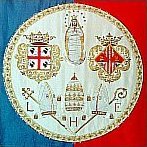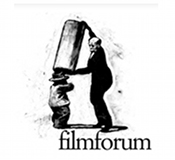GAME – Games as Art, Media, Entertainment is an international, independent, open-access, peer-reviewed games studies journal that works as a forum for theoretical, critical, and practice-based research on games and play. The Journal encourages interdisciplinary research and critical discussions of games and play by bringing together designers, practitioners, scholars, and players around issues that concern traditional and digital games, their industries, and theirs sites of production and reception.
A double-blind peer-reviewed scientific journal, GAME is managed by an Editorial Board and an Academic Advisory Board, and it follows a detailed Code of Conduct. This Journal is sustained by the voluntary work of scholars, academics and contributors and academic sponsors. Published contributions are published under a Creative Commons Licence, and they remain the property of their respective Authors.
GAME welcomes studies that locate games and play as sites of crossing with the practices and discourses of the media, the arts, and all other forms of expression and culture. Each of its yearly, theme-based scientific issues explores current developments in games studies, bringing together scholars from different disciplinary areas and from all over the world. As an international Journal, GAME publishes mainly in English, but it warmly welcomes contributions and proposals in Italian and all other languages.
The first issue of GAME was published in 2012. Beginning as a venue to understand the cross-media articulations and exchanges between games, film, music, audiovisuals, literature, comics, and traditional games in the light of digitisation and media convergence, GAME has since expanded to address topics and areas that include spatial design, the study of games in subcultural perspective, gender issues, accessibility and special needs, intersections with film and music, and meta-ludic designs. Along with the peer-reviewed scholarly contributions that cover a wide range of research methodologies, GAME has published an extensive amount of critical material, including articles, book reviews, and interviews.
Since its launch, GAME has been providing an interdisciplinary platform for established and influential scholars as well as emerging researchers, young scholars, practitioners and critics. GAME is currently indexed on several international databases, and many of its papers have been licensed for publication in other areas and languages in accordance to an open-access, non-commercial ethos. With its future issues, GAME aims to further broaden its influence in the games studies area by providing an ever-expanding forum for the furthering and sharing of scientific knowledge as well as an ethos of inclusivity and equality.
Conceiving of play as a foundational element of the human experience, GAME will continue to serve as an international, open-access arena for scholars of all backgrounds to elaborate theoretical paradigms, discuss research methodologies, and provide analyses and historical accounts of games, in the light of the ongoing transformations of the media ecologies and geopolitical contexts we inhabit.
Download GAME’s CODE OF CONDUCT.
With the patronage of

Università di Cagliari
Dipartimento di Storia, Beni Culturali e Territorio


